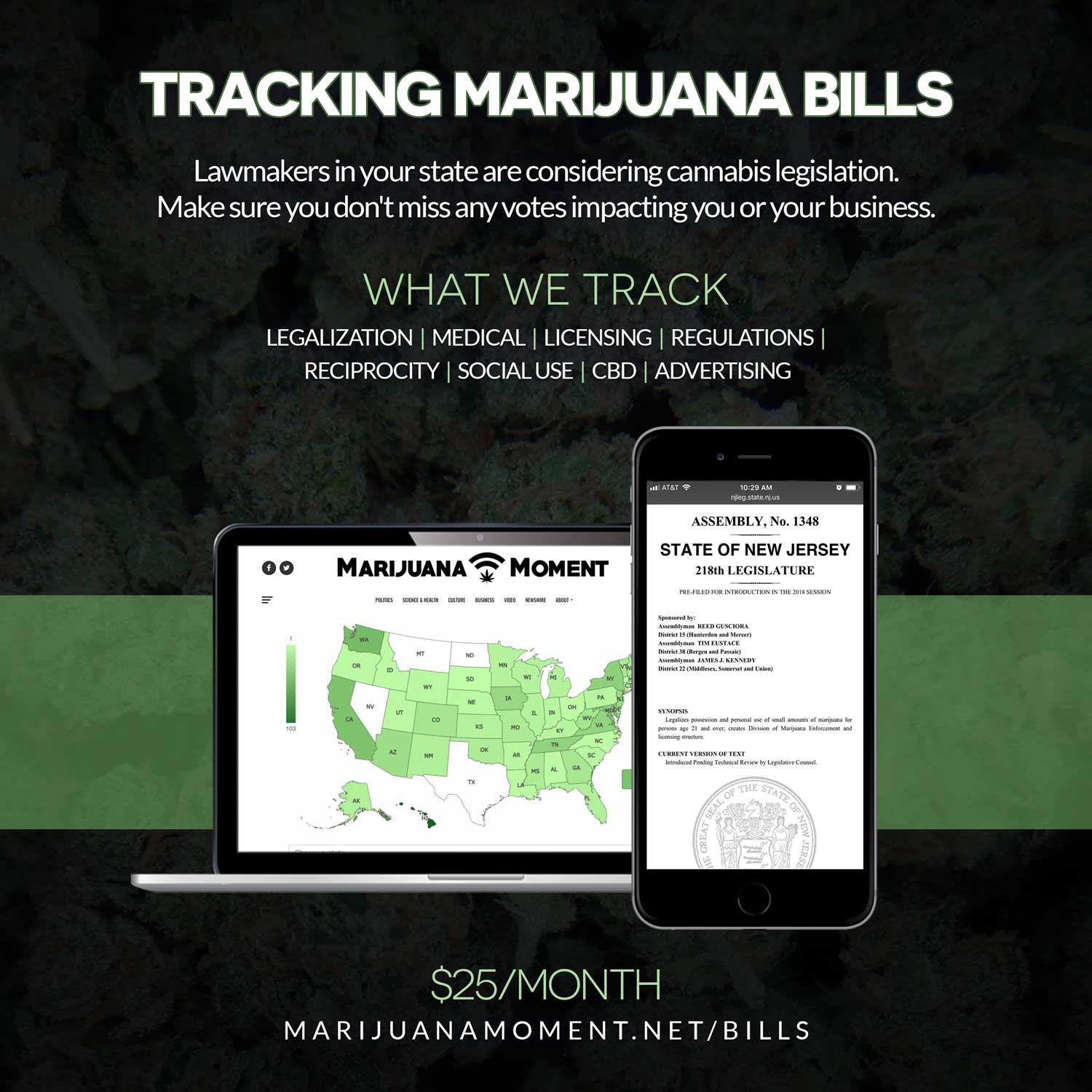The Florida Chamber of Commerce has released a new poll showing that a marijuana legalization initiative that may appear on the November ballot enjoys majority support from likely voters—but not quite enough to meet the state’s steep threshold for passage.
The business-focused organization shared the results of the survey it commissioned on Friday. It found that 57 percent of Floridians back the cannabis proposal, meaning it falls slightly short of the 60 percent that would be required to approve the constitutional amendment.
The chamber also said that the poll “finds voters less likely to support the amendment as they find about its impact on children and businesses,” but it has not released the language of the survey questions in response to Marijuana Moment’s request, so it’s unclear how they were framed.
For what it’s worth, the Florida Chamber of Commerce is on the record opposing the marijuana reform measure, which is currently under review in the Florida Supreme Court following a legal challenge from state Attorney General Ashley Moody (R).
An attorney representing the chamber participated in oral arguments before the court last year, seeking to invalidate the initiative from the ballot and prevent voters from having a chance to decide on it. A final ruling must be made in the case by April 1.
“With 144 amendments since its creation in 1968, Florida’s constitution has long been a target of special interest groups with agendas and recreational marijuana is no different,” the chamber’s president ,Mark Wilson, said in a press release. “The Florida Chamber continues to lead the fight it has fought for over 100 years against similar proposed amendments that could be addressed legislatively rather than through altering Florida’s foundational document.”
The poll which involved 600 likely voters and was conducted from December 27, 2023 to January 4, 2024, has a margin of error of +/- 4 percentage points.
Other previous polls have found that voters are well-positioned to pass the legalization initiative with more than enough support. For example, the University of North Florida put out a survey last month that showed 67 percent of voters back the proposal.
The multi-state marijuana company Trulieve has contributed more than $40 million to the Smart & Safe Florida campaign to date. The state attorney general has accused the company of supporting the measure in order to have a “monopolistic stranglehold” on the state’s cannabis market.
If approved, the measure would change the state Constitution to allow existing medical cannabis companies in the state like Trulieve to begin selling marijuana to all adults over 21. It contains a provision that would allow—but not require—lawmakers to take steps toward the approval of additional businesses. Home cultivation by consumers would not be allowed under the proposal as drafted.
Adults 21 and older would be able to purchase and possess up to one ounce of cannabis, only five grams of which could be marijuana concentrate products. The three-page measure also omits equity provisions favored by advocates such as expungements or other relief for people with prior cannabis convictions.
Last week, a Republican Florida lawmaker preemptively filed a bill that would impose strict limitations on THC potency if the legalization measure is approved by voters.
Meanwhile, Florida officials said last month that they’ve arrested two paid canvassers charged with allegedly falsifying signatures on petitions to put the marijuana legalization initiative on the state’s 2024 ballot.
Economic analysts from the Florida legislature and the office of Gov. Ron DeSantis (R) estimate that the marijuana legalization initiative would generate between $195.6 million and $431.3 million in new sales tax revenue annually if voters enact it. And those figures could increase considerably if lawmakers opted to impose an additional excise tax on cannabis transactions that’s similar to the ones in place in other legalized states.
The governor, who is running for the 2024 Republican presidential nomination, has maintained opposition to the policy change and said last summer that he would not move to federally decriminalize cannabis if elected. However, he said this week that he would still “respect the decisions that states make,” despite his personal opposition.
DeSantis also recently suggested that the increase in Florida’s medical cannabis patient population is partly due to people using the program as a “pretext” for recreational use.
—Marijuana Moment is tracking more than 900 cannabis, psychedelics and drug policy bills in state legislatures and Congress this year. Patreon supporters pledging at least $25/month get access to our interactive maps, charts and hearing calendar so they don’t miss any developments.Learn more about our marijuana bill tracker and become a supporter on Patreon to get access.—
Separately, DeSantis signed a bill that took effect over the summer that added restrictions to medical marijuana advertising and manufacturing, prohibiting any products or messages that promote “recreational” cannabis use, while adding more stringent eligibility requirements for workers in the industry.
Additionally, the governor approved a bill in June that expressly prohibits sober living facilities from allowing residents to possess or use medical marijuana, even if the patient is certified by a doctor to legally use cannabis therapeutically in accordance with state law. All other doctor-prescribed pharmaceutical medications may be permitted, however.
He also signed legislation in July banning sales of any consumable hemp products—including cannabis “chewing gum”—to people under 21, an expansion of an existing prohibition on young people being able to purchase smokable hemp.
The organizer of a separate Florida ballot initiative to legalize home cultivation of medical marijuana by patients recently withdrew the proposal, explaining that the campaign raised barely more than $4,000 and couldn’t cover costs associated with trying to qualify the measure.
In the legislature, meanwhile, a Florida Republican senator introduced a bill last month to allow licensed medical cannabis businesses to take state tax deductions that they are barred from claiming at the federal level under an Internal Revenue Service (IRS) code known as 280E.
Read More Feedzy

